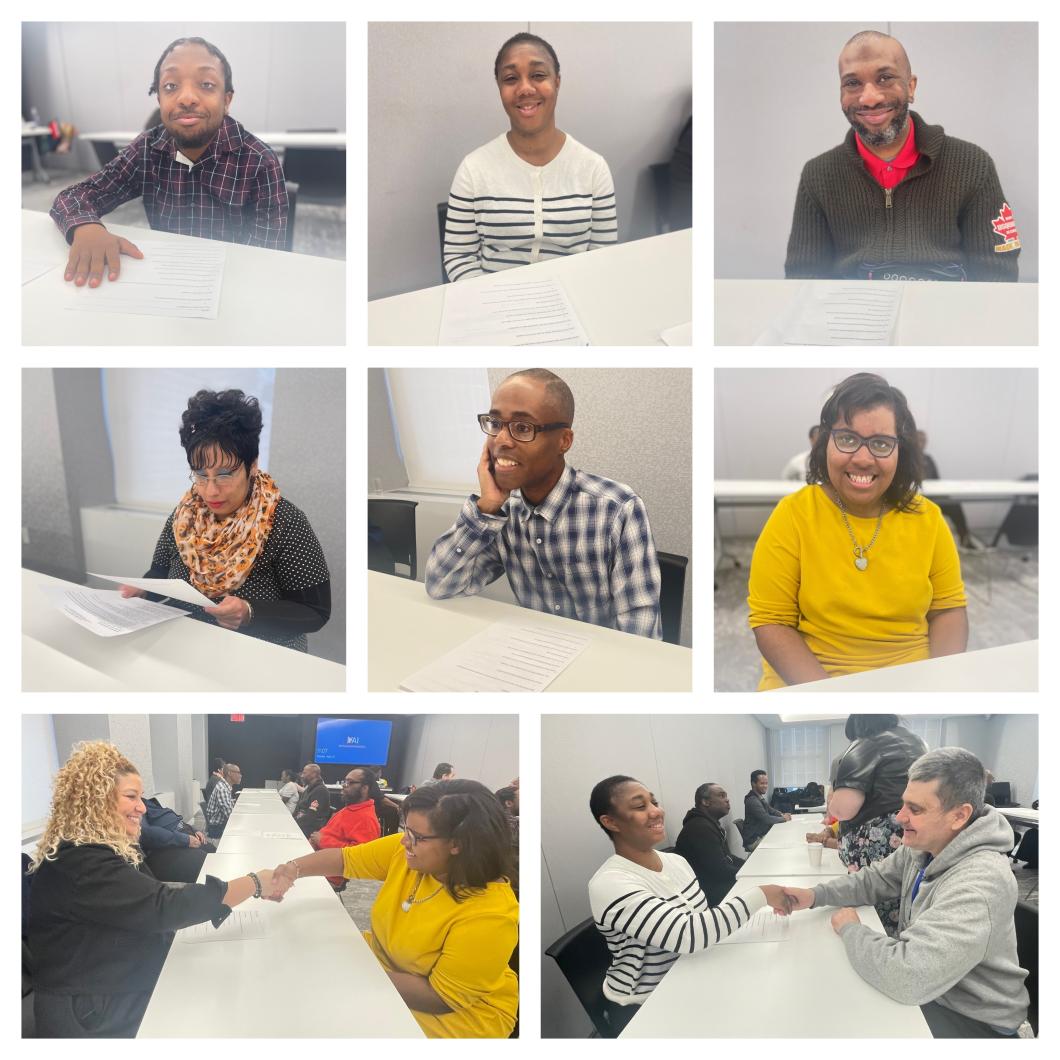Share

A group of 15 people, dressed to impress with their resumes in hand, gathered in Conference Room A at YAI Headquarters last Tuesday. There was one thing on their agenda: be better prepared for their next job interview.
The participants of the mock interviews were from YAI’s employment programs in Manhattan and Brooklyn. It was the first event of its kind and garnered much enthusiasm and excitement from the group, who were meeting each other for the first time.
“It’s a great opportunity for us to bring the programs together and give a new formal environment to practice interview questions,” said Michael Friedland, Business Engagement Specialist from Brooklyn. “Some questions can be abstract and those can be difficult to answer for the people we support. Knowing when to stop can be challenging for them too.”
The event was set up like speed dating, where the job seekers would take turns, either being the interviewer or playing the interviewee. The group sat in a circle around the room and each team of two had one minute to ask and answer interview questions such as:
Tell me about yourself
What are some of your strengths?
What is your dream job?
What would you like me to know about you that is not on your resume?
What are you looking for in your next position?
After the minute was up, the people sitting on the outer side of the table moved clockwise to the next person and answered another question.
“I liked meeting new people and getting asked different questions about going to work,” said Katrina Bailey, 24, from Brooklyn. “I liked the question about the dream job because my dream job is to work for a radio station like Z100 and be part of the Z Morning Zoo. I would love that.”
After the event, YAI employment services staff filled out evaluations for all the participants and gave them feedback to help them as they continue their job search.
“Employers should give people with I/DD a chance to show them what he or she can fully do rather than assuming they can’t do certain things,” said Friedland. “People we support bring loyalty and enthusiasm to the job. They boost morale, and that’s a great asset for any company.”
